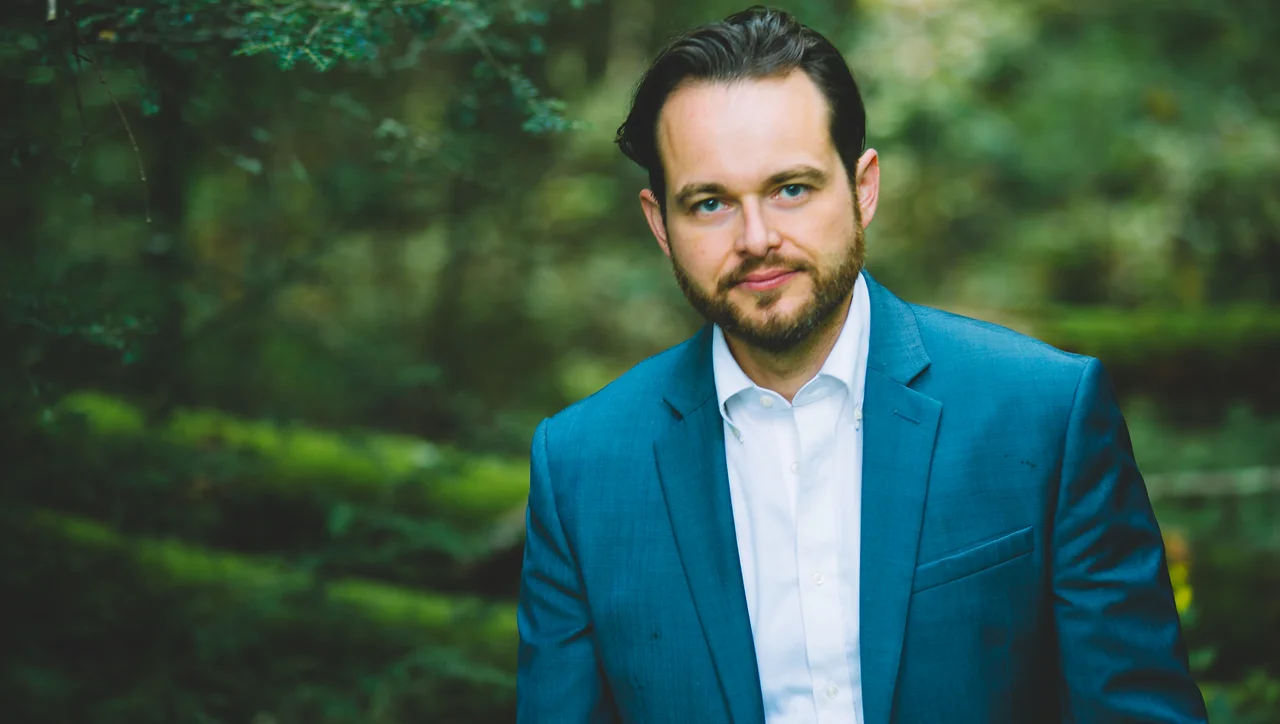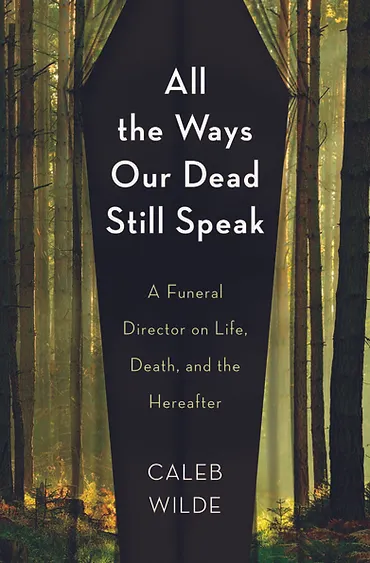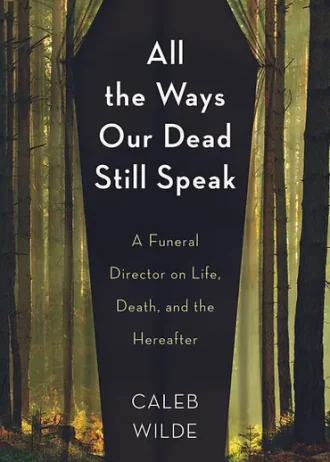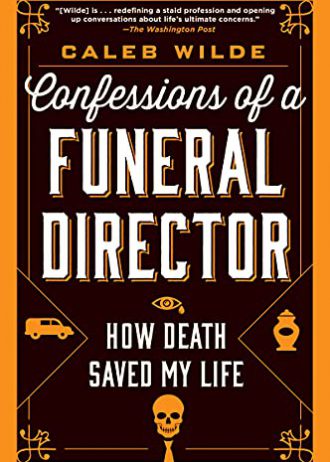
ABOUT THE AUTHOR
CALEB WILDE is the award-winning author of Confessions of a Funeral Director and a sixth-generation funeral director. He and his work have been featured in top media outlets including The Atlantic, Time, The Washington Post, Salon, Forbes, NPR, NBC, ABC’s 20/20, and Vice. He has a master’s degree in theology and is pursuing a doctorate in theology. Wilde and his family live in Parkesburg, Pennsylvania.
Books
All the Ways Our Dead Still Speak
What if our dead remain with us? What if closure is not the goal? No matter what you believe about the afterlife, what if the hereafter intersects with the here and now?
Caleb Wilde, author of the acclaimed memoir Confessions of a Funeral Director, was a skeptic. The baffling stories people told him–deathbed visions of long-dead parents, visits from the other side–must be hallucinations or wishful thinking, he thought. But the more stories he heard, and the more he learned about non-Western understandings of body and spirit, the less sure he was.
All the Ways Our Dead Still Speak takes readers on a lyrical and tender quest to encounter the hereafter. As Wilde picks up bodies, organizes funerals, and meets with grieving families in a small town in Pennsylvania, those who remain share with him–and us–what they experience in the thin places between life and death. Entwining these stories with his own as a sixth-generation funeral director, and with the findings of neuroscience and the solace of faith, Wilde creates a searching, reverent inquiry into all the ways our dead remain with us. In the process, he takes on prevailing dogmas about death: from a narrow Christian view of heaven and hell, to secular assumptions that death is the end, to pop-psychology maxims that say we all need “closure” after our loved ones die.
The dead don’t have to be buried twice, once in the ground and again in our hearts. In the pages of this unforgettable book, learn how love and memory and mystery fuse this world to the next.
Confessions of a Funeral Director: How the Business of Death Saved My Life
We are a people who deeply fear death. While humans are biologically wired to evade death for as long as possible, we have become too adept at hiding from it, vilifying it, and—when it can be avoided no longer—letting the professionals take over.
Sixth-generation funeral director Caleb Wilde understands this reticence and fear. He had planned to get as far away from the family business as possible. He wanted to make a difference in the world, and how could he do that if all the people he worked with were . . . dead? Slowly, he discovered that caring for the deceased and their loved ones was making a difference—in other people’s lives to be sure, but it also seemed to be saving his own. A spirituality of death began to emerge as he observed:
- The family who lovingly dressed their deceased father for his burial
- The act of embalming a little girl that offered a gift back to her grieving family
- The nursing home that honored a woman’s life by standing in procession as her body was taken away
- The funeral that united a conflicted community
Through stories like these, told with equal parts humor and poignancy, Wilde offers an intimate look into the business and a new perspective on living and dying
IN THE PRESS
This deeply reassuring book is for anyone who has ever grieved deeply, wondered where their loved ones are, and yearned to stay connected to them.
CLAIRE BIDWELL SMITH
Author of Anxiety: The Missing Stage of GriefThere's a weird hush around afterlife connections. But Caleb Wilde's book, All the Ways the Dead Still Speak, will help peel away any shame or shyness you have around holding space for those you love.
MEGAN DEVINE
Author of It's OK That You're Not OKCaleb Wilde once again brings us into the funeral parlor of our hearts and lets us all weep. A delicious and intimate look at how a slight shift in our understanding of death can bring peace and healing.
KEVIN GARCIA
Mystic theologian and practitioner, and author of Bad Theology KillsAll the Ways Our Dead Still Speak is a stunning book about death, life, faith, and the love that binds all of us to each other. The story Caleb Wilde weaves together feels, at times, like a near-death experience: a powerful, hopeful, and life-altering encounter with the other side.


